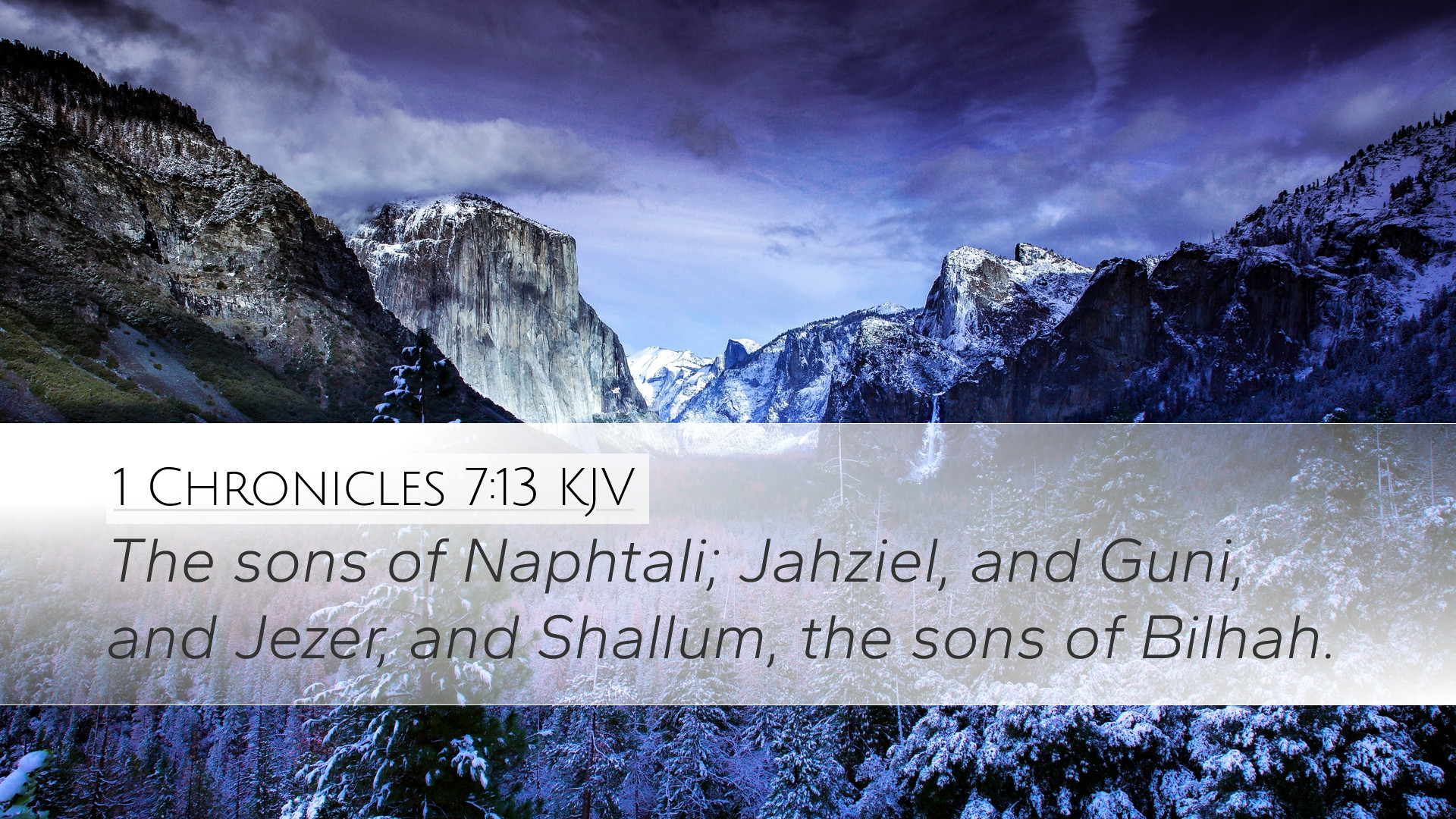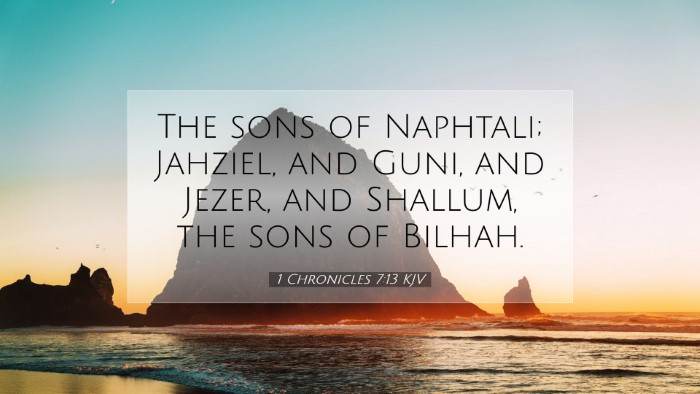1 Chronicles 7:13 Commentary
Verse: 1 Chronicles 7:13
This verse states: “The sons of Benjamin were Bela, Becher, and Jediael, three. The sons of Bela: Ezbon, Uzzi, and Ahihud…”. Herein lies a critical glimpse into the genealogical lineage of the tribes of Israel, specifically the tribe of Benjamin.
Genealogical Significance
Matthew Henry remarks that these genealogies laid out in 1 Chronicles serve multiple purposes, including establishing the claims and privileges of tribes. The account of Benjamin is particularly significant due to the tribe’s association with key biblical figures, including Saul, Israel’s first king. This highlights both the historical and theological importance of this lineage.
The Importance of the Tribe of Benjamin
Albert Barnes emphasizes that during the time of the divided kingdom, the tribe of Benjamin was crucial as it was central to the territory of Judah. Understanding this context enriches our comprehension of the socio-political dynamics of ancient Israel. The three names mentioned - Bela, Becher, and Jediael - denote the principal clans within Benjamin, suggesting a structured community focused on tribal unity and development.
The Names of the Sons: Symbolism and Legacy
The naming within genealogies in the Bible often carries deep meaning. Adam Clarke makes note of these names, indicating that they were not just identifiers but encapsulated qualities and virtues expected from these clans. For instance:
- Bela: Associated with destruction yet also a royal family—showing how names can reflect attributes of a clan’s character.
- Becher: Implies a promise or the notion of being firstborn, highlighting the significance of heritage and blessings associated with birth order.
- Jediael: Meaning “God knows," which emphasizes divine omniscience in the family lineage.
Theological Implications
God's Providence in Lineage
Matthew Henry notes that these genealogies remind us of God’s providence throughout history, showcasing His faithfulness to His covenant people. Benjamin’s genealogy serves as a testament to God’s unwavering grace, being one of the tribes that Jesus Christ, the Messiah, descended from.
Community and Identity
Furthermore, Albert Barnes comments on the aspect of community identity linked to genealogical records. The families mentioned were integral to the cohesion and cultural identity of the Israelite nation. They underline the importance of familial ties in understanding one’s place within the broader narrative of Scripture and God’s redemptive history.
Conclusion
The verse in 1 Chronicles 7:13 not only provides a list of names but points toward a broader narrative encompassing divine purpose, generational legacy, and identity within God’s chosen people. For pastors, scholars, and theologians, these genealogies should be seen as more than mere historical records—they are vital to our understanding of God’s overarching plan for humanity and the intricate tapestry that is woven through the stories of His people.
Reflections for Today
As we reflect on 1 Chronicles 7:13, let it encourage us to appreciate the richness of our spiritual heritage, recognize the importance of our identity in Christ, and understand our role in the continuing story of God’s people.


